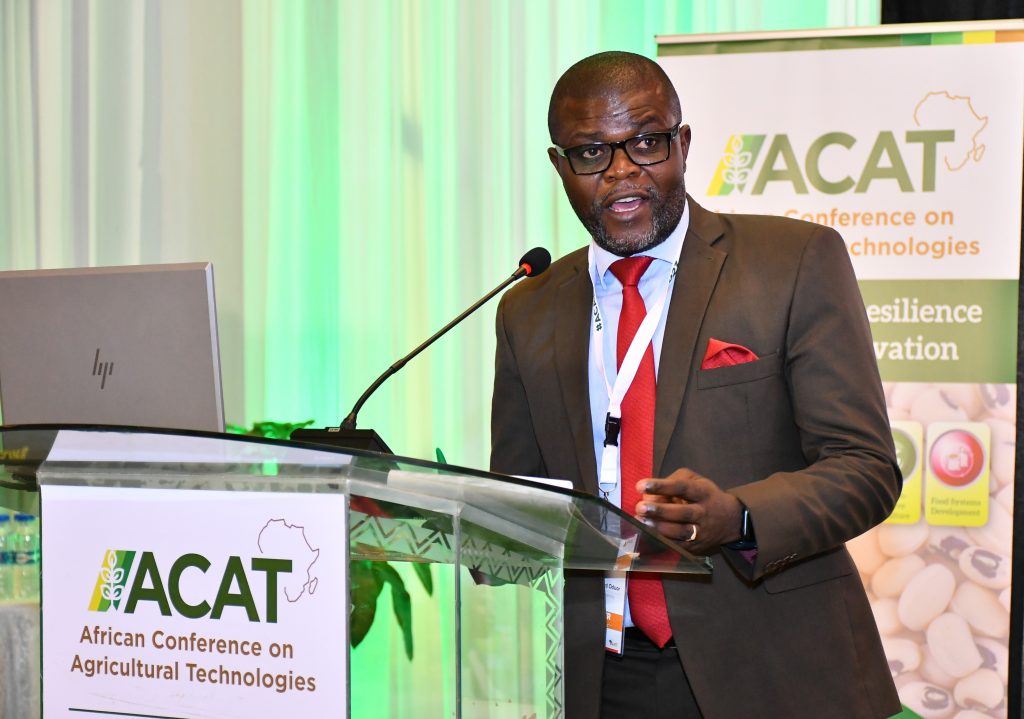Read in
Awareness creation on the importance of agricultural biotechnology is key to contributing to the economic empowerment, food security, and health in Africa.
Conversations about agricultural biotechnology are influenced more by public opinion rather than science and that perception does not exactly give the true picture.
Open Forum on Agricultural Biotechnology (OFAB) Manager at the African Agricultural Technology Foundation (AATF) Vitumbiko Chinoko said instead of defending science, emphasis should be put on highlighting the benefits of innovations.
“Africa can develop its own biotech crops with increased national investment in biotechnology,” he told the plenary session during day three of the ongoing ACAT 2023 under the theme ‘Mainstreaming Biotechnology in African Agriculture’.
Prof. Richard Oduor, Molecular Biologist, Registrar Research Kenyatta University said that mainstreaming Biotechnology in Africa will require national governments to invest in research, at least 1 percent of GDP as well as enhancing capacity building in new innovations that include gene editing, artificial Intelligence, machine learning, precision Agriculture and remote sensing.
He added that supporting countries that do not have a regulatory framework to do so in order to support adoption of new technologies is also key while active knowledge creation through objective messaging that unlocks conventional beliefs is also important.
Prof. Oduor who is also chair Kenya University Biotechnology Consortium (KUBICO) told KNA. ” There is need to establish modern infrastructure that would support cutting edge research that is proprietary, solid government goodwill and also employing data, precision agriculture and digitalization of Agriculture through the entire value chain”.

Prof. Abdullahi Mustapha, Director General and CEO, National Biotechnology Development Agency NABDA in Nigeria said governments should be more receptive to biotech and create an enabling platform to attract the private sector because as long as the private sector sees an opportunity to make returns from their investment, they will support biotechnology.
Dr. Titus Alicai, Director of Research and Postgraduate Studies, National Agricultural Research Organization (NARO), Uganda said that there is need to develop infrastructure for practice for the scientists because when they are trained and not engaged locally, they migrate to countries where they can get better opportunities.
Patience Koku, CEO, Replenish Farms in Nigeria said channels that are already established like the seed companies should be used as a pathway to ensure biotechnology and its products get down to the smallholder farmers because the farmers will always want the right product.
The week long African Conference on Agricultural Technologies (ACAT) conference was officially opened Agriculture and Livestock Cabinet Secretary Mithika Linturi who represented President William Ruto
In his speech President Ruto said that innovations and adoption of new technologies are essential for offering Africa resilience and global competitiveness.
The conference is running under the them “Agricultural Resilience through Innovations”



